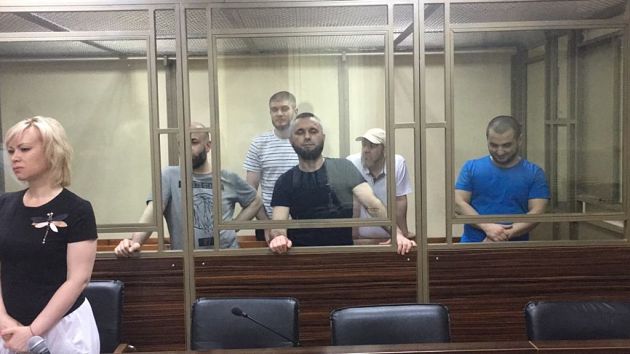The military court of Putin’s Russia has sentenced five Crimean Tatar Muslims to a total of 68 years in prison, despite the fact that they did not commit or plan any acts of violence or provide any support for such acts.
This decision was made yesterday by the so-called North Caucasus District Military Court, which sentenced the following individuals:
- Teymur Abdullaev – to 17 years in a maximum security colony
- Rustem Ismailov – to 14 years in a maximum security colony
- Uzeir Abdullaev (siblings) – to 13 years in a maximum security colony
- Emir Dzhemadenov – to 12 years in a maximum security colony
- Aider Saledinov – to 12 years in a maximum security colony
These draconian sentences were based solely on their alleged membership in the Hizb ut-Tahrir party, which is recognized as a terrorist organization in Russia.
We have repeatedly and sincerely stated that we disagree with Hizb ut-Tahrir on almost all current political issues. However, first of all, regardless of one’s opinion about the party, it operates legally in almost all Western countries, including the United States, the United Kingdom, Canada, Australia, etc. It is banned in Germany, but not as a terrorist organization, but for refusing to recognize the State of Israel, so there is no talk of draconian punishments for membership.
Second, these individuals were not involved in any party activities at the time of their arrest and conviction. Hizb ut-Tahrir operated freely in Crimea under Ukrainian rule, and its activities were clearly visible – numerous rallies, conferences under its own flag, distribution of party literature, etc. After Russia’s annexation of the peninsula, all of this ceased, for understandable reasons.
So, for what are these people sentenced to almost 70 years of imprisonment (!), just as their unfortunate brothers were sentenced to several decades of deprivation of liberty? In essence, they are being sentenced for being members of an organization that operated legally before Russia took control of the peninsula, and for maintaining friendly relations among themselves and directing their efforts toward human rights activities.
Military tribunals, the review of cases of peaceful political activists, the retroactive application of prohibitive laws, torture, as claimed by all those convicted during the investigation, and draconian sentences for human rights activities – these are the realities of Russian-occupied Crimea and of Putin’s Russia as a whole.

